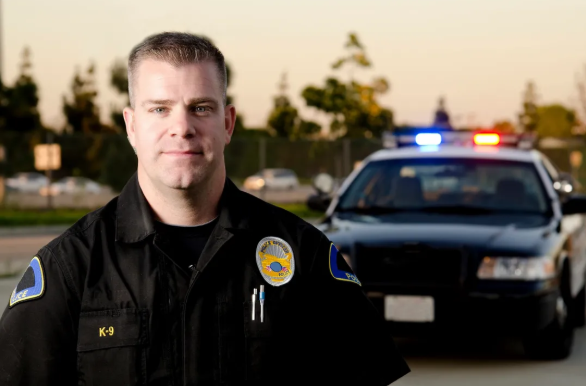Should You Take the Breathalyzer? Considerations for Long Island Drivers
If you find yourself pulled over by the police in Nassau County or anywhere on Long Island and the officer asks you to take a breathalyzer test, you might be wondering if it’s a good idea to comply. This is a common concern in Long Island DUI refusal cases and can significantly impact your legal situation. Speaking with a skilled Long Island DUI lawyer can help you understand your options and protect your rights.
What is a Breathalyzer?
In Nassau County and across Long Island, police may ask you to take a breathalyzer in two common situations:
- Before Arrest:
During a traffic stop, an officer may ask you to take a portable breathalyzer test (PBT). This handheld test gives a quick estimate of your blood alcohol concentration (BAC). - After Arrest:
At the police station, you must take a chemical breathalyzer that measures your BAC more accurately. This official test produces results used as evidence in court.
Both tests are called breathalyzers, but they serve different roles in the legal process.
Understanding the Consequences of Refusing the Breathalyzer
In Nassau County and throughout Long Island, refusing to take a breathalyzer test can have serious consequences. Here’s a breakdown of what you need to consider:
- Legal Implications
- Common Law DWI:
Even if you refuse the breathalyzer, police can still charge you with Common Law DWI under VTL 1192.3. This charge relies on observed signs like slurred speech, bloodshot eyes, or erratic driving – not your BAC level. The officer’s testimony about your behavior can become strong evidence against you in court. In Nassau County and Long Island, these charges may lead to jail, fines, and an ignition interlock device. - License Suspension:
Refusing the breathalyzer triggers an automatic one-year driver’s license suspension under New York law. In Nassau County and Long Island, this means you cannot legally drive for at least one year. - DMV Refusal Hearing:
You must attend a DMV Refusal Hearing after declining a breathalyzer test. A judge will decide if your license should be suspended based on the refusal. This hearing is separate from your criminal case and can impact your license even if you’re not convicted.
- Use of Refusal as Evidence
- Consciousness of Guilt: In court, your refusal to take the breathalyzer can be used as evidence against you. Prosecutors may argue that your refusal indicates a “consciousness of guilt,” suggesting that you refused because you were aware you were intoxicated.
- Conditional License
- No Conditional License: If you refuse the breathalyzer, you lose the opportunity to apply for a conditional license. This type of license allows you to drive to work or for other essential purposes while your criminal case is pending. In Nassau and Suffolk counties, this can be a significant disadvantage if you rely on your vehicle for daily activities.
When It Might Be Beneficial to Take the Breathalyzer
In certain situations, taking the breathalyzer might be advantageous:
- Low or No Alcohol Consumption
- Minimal Drinking: If you’ve had only a small amount of alcohol or none at all, taking the breathalyzer is generally a good idea. A low BAC result can help you in negotiating a plea deal with the District Attorney.
- Borderline BAC: Even if your BAC is just above the legal limit, there may still be room for negotiation. An experienced attorney can help argue that the reading should not result in the harshest penalties.
- No Criminal History
- First Offense: If this is your first DWI/DUI charge, a low or borderline BAC can make it easier to reach a favorable plea agreement. Nassau County and Long Island courts may be more lenient with first-time offenders who show cooperation.
- Negotiating a Plea Deal
- Plea Bargaining: By taking the breathalyzer and showing a lower BAC, you might have a better chance to negotiate a plea deal with the District Attorney. This could lead to reduced charges or lighter penalties.
The Role of an Experienced DUI Refusal Attorney in Nassau County and Across Long Island
No matter what decision you make regarding the breathalyzer, it is crucial to have a knowledgeable Long Island DUI refusal attorney by your side. Here’s how an experienced attorney can assist you:
- Legal Guidance
- Understanding Your Rights: A skilled attorney will help you understand your rights and the potential consequences of taking or refusing the breathalyzer. They can provide advice tailored to your specific situation in Nassau or Suffolk County.
- Case Evaluation: They will evaluate the strengths and weaknesses of your case, including whether the police had a valid reason to pull you over and whether the breathalyzer results are reliable.
- Court Representation
- Navigating the Legal System: An attorney will represent you in court, ensuring that all procedural requirements are met and that your case is handled effectively. They will advocate on your behalf to achieve the best possible outcome.
- Negotiation and Defense: They will negotiate with the District Attorney to seek a favorable plea deal if applicable and will provide a strong defense if your case goes to trial.
Speak With a Long Island DUI Refusal Attorney Today
If police arrested you for DWI or DUI in Nassau County or Long Island, act quickly to protect your rights. Attorney Ramy M. Louis has handled many DWI cases as both a prosecutor and a defense attorney. He will guide you through the legal process and clearly explain your available options. He fights hard to achieve the best possible outcome in every DWI or DUI case.
Contact The R.M.L. Law Firm, PLLC today for a free case evaluation:
Phone: 516-765-5566 (516-RML-5566)


